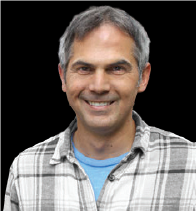The Medicine by Design Global Speaker Series invites established and emerging international leaders in regenerative medicine to engage with our extraordinary community of researchers and clinicians.
Medicine by Design, in partnership with the Ontario Institute for Regenerative Medicine, is pleased to welcome Kevin Chalut, PhD, a Royal Society University Research Fellow, Cavendish Laboratory, at the University of Cambridge and principal investigator in the Cambridge Stem Cell Institute. He will give a talk titled, “Mechanical signalling and cell fate.”
- Download event poster
- This event will be livestreamed (link will be live shortly before event)
Talk Abstract
The role of mechanical signaling in cell fate choice has been largely overlooked; however, it plays a significant role in tuning cellular response to signals. My lab is investigating the interplay between biochemical signaling and mechanical signaling in cell fate decisions. I will show first in the mouse embryo that biochemical signaling modulates cytoskeletal contractility to influence spatial positioning and solidify cell fate choice. I will then show that mechanics tunes the response of the cell to biochemical signaling to steer fate choice. This hypothetical feedback loop between mechanics and biochemical signaling likely has significant impact on cellular plasticity both in development and stem cells. I will also present an example demonstrating the functional impact of mechanics on stem cell function. In this example, we have shown that we can reverse the loss of plasticity associated with ageing by controlling the mechanical microenvironment. Ultimately, I will advance the hypothesis that mechanical sensing acts as a switch to modulate growth factor signaling to modulate cell fate choice.
Biography
Kevin Chalut is a biophysicist with a PhD in Physics from Duke University. He is currently a group leader at the Wellcome Trust-Medical Research Council Stem Cell Institute in Cambridge.
His work focuses on using the tools and concepts of physics to study cell fate choice in stem cells and developing organisms. His lab primarily investigates how the mechanical microenvironment regulates fate decisions, and exactly how cells process information during that fate choice. The ultimate goal of his laboratory is to apply their physics-based techniques to understand how organisms develop, and also how to use stem cells for therapeutic use.


